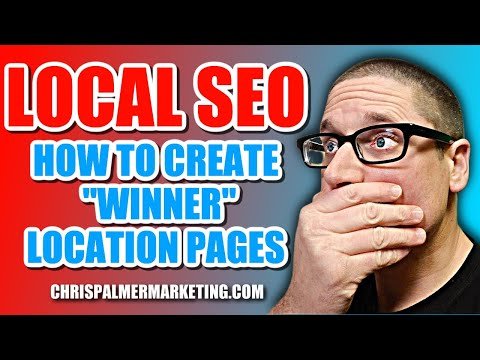Mastering Location-Based Content Creation for SEO Success

In today’s digital world, creating a strong online presence is crucial for businesses looking to attract customers and drive traffic to their websites. One powerful way to enhance your SEO efforts is through location-based content creation. By tailoring your content to specific geographic locations, you can better target local audiences and improve your search engine rankings. In this blog post, we’ll delve into the strategies and best practices for mastering location-based content creation to achieve SEO success.
Understanding the Importance of Location-Based Content
Location-based content is all about customizing your digital content to appeal to users in a particular geographical area. Whether you’re a local business targeting customers in a specific city or a national brand looking to capture regional markets, optimizing your content for location can significantly boost your SEO performance. Search engines like Google prioritize local results, especially for users conducting “near me” searches or looking for businesses in their vicinity. By integrating location-specific keywords and information into your content, you can improve your visibility in local search results and attract relevant traffic to your website.
Conducting Thorough Keyword Research
Before you start creating location-based content, it’s essential to conduct thorough keyword research to identify the terms and phrases your target audience is using to search for local businesses or services. Tools like Google Keyword Planner, SEMrush, or Ahrefs can help you discover relevant keywords with high search volumes and low competition. Focus on long-tail keywords that include location-specific modifiers such as city names, neighborhoods, or landmarks. By incorporating these keywords naturally into your content, you can increase your chances of ranking higher in local search results and reaching users in your target areas.
Optimizing On-Page Elements for Local SEO
Once you’ve identified your target keywords, it’s time to optimize your on-page elements to align with your location-based content strategy. Make sure to include the location in your meta titles, meta descriptions, headers, and image alt text. For example, if you’re a coffee shop in Seattle, your meta title could be “Best Coffee in Seattle | Local Roasters on Every Corner.” This not only helps search engines understand the geographic relevance of your content but also provides users with valuable information about your business’s location and offerings.
Creating Location-Specific Landing Pages
One effective way to enhance your location-based content strategy is by creating dedicated landing pages for different geographic areas you serve. These pages can feature unique content tailored to each location, such as local customer testimonials, event information, or promotions specific to that area. By signaling to search engines that you have a presence in multiple regions, you can improve your chances of appearing in localized search results and attracting a diverse range of customers. Remember to keep your landing pages informative, engaging, and optimized for both users and search engines.

Leveraging Google My Business for Local Visibility
Google My Business (GMB) is a powerful tool for enhancing your local SEO efforts and increasing your online visibility. Claiming and optimizing your GMB listing allows you to provide accurate business information, including your address, phone number, website, and business hours, directly to users searching for businesses in your area. Additionally, GMB enables you to collect and respond to customer reviews, showcase photos of your location, and even post updates or offers to attract local customers. By actively managing your GMB profile and keeping it up to date, you can strengthen your presence in local search results and drive more traffic to your website.
Engaging with Local Audiences through Content
In addition to optimizing your content for search engines, it’s crucial to create engaging and valuable content that resonates with local audiences. Consider leveraging local events, news, or trends in your industry to create relevant and timely content that showcases your connection to the community. You can also collaborate with local influencers, partners, or businesses to co-create content that appeals to their followers and extends your reach within the local market. By building relationships with your audience and providing them with meaningful content, you can cultivate brand loyalty, drive traffic to your website, and improve your overall SEO performance.
Monitoring and Measuring Your Results
As with any SEO strategy, it’s essential to monitor and measure the effectiveness of your location-based content creation efforts. Use tools like Google Analytics, Google Search Console, or local SEO platforms to track key metrics such as organic traffic, keyword rankings, click-through rates, and conversion rates for your location-specific pages. Pay attention to user engagement metrics like bounce rate, time on page, and social shares to gauge the impact of your content on local audiences. By analyzing these metrics regularly and making data-driven adjustments to your content strategy, you can optimize your SEO performance and stay ahead of the competition in local search results.
The Bottom Line
Mastering location-based content creation is a powerful way to enhance your SEO efforts and reach local audiences effectively. By understanding the importance of location-based content, conducting thorough keyword research, optimizing on-page elements, creating location-specific landing pages, leveraging Google My Business, engaging with local audiences through content, and monitoring your results, you can develop a robust strategy that enhances your online visibility and drives organic traffic to your website. Incorporate these best practices into your content creation process and watch as your SEO success soars in local search results. Start implementing these strategies today and unlock the full potential of location-based content for your business.



